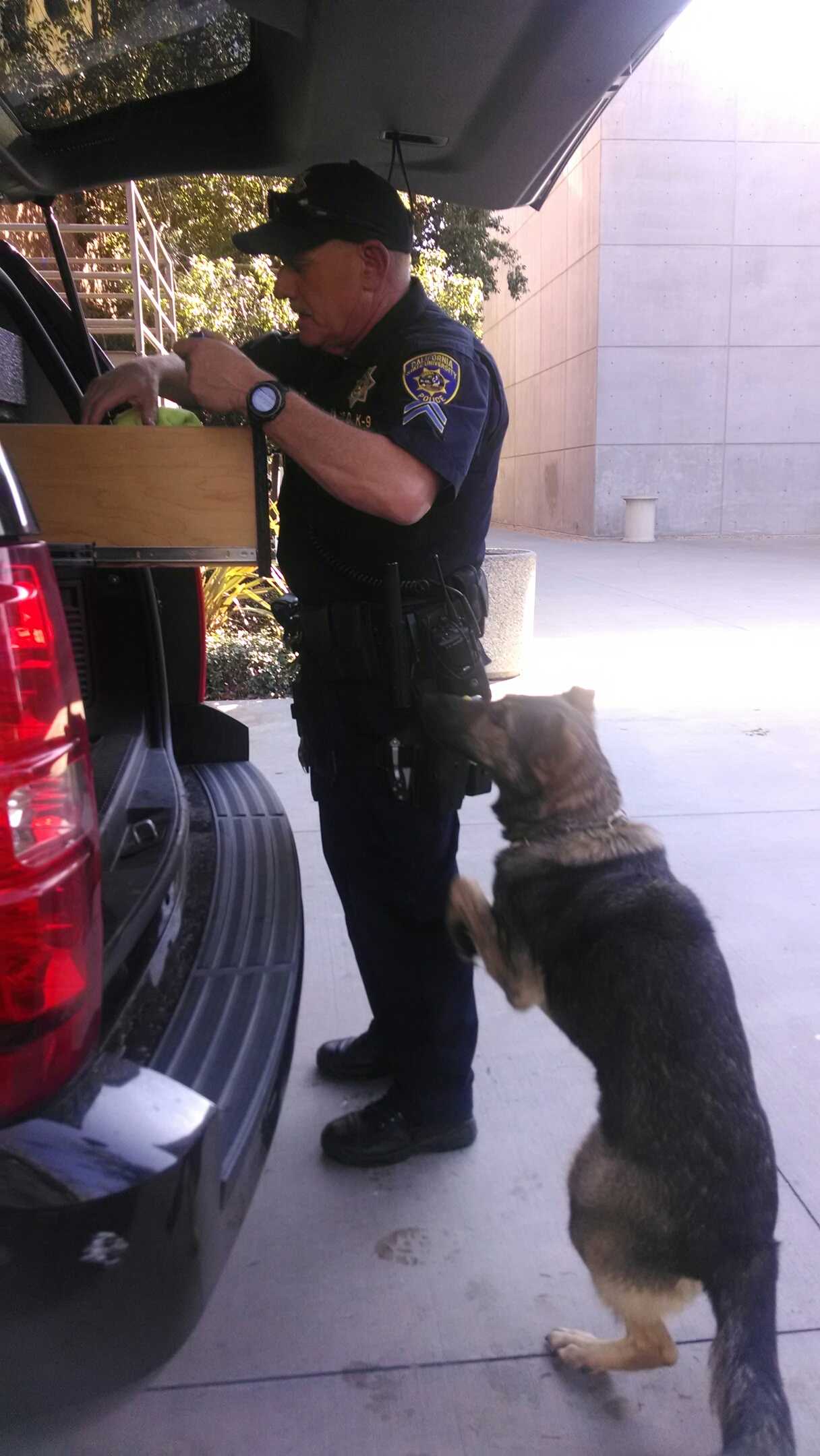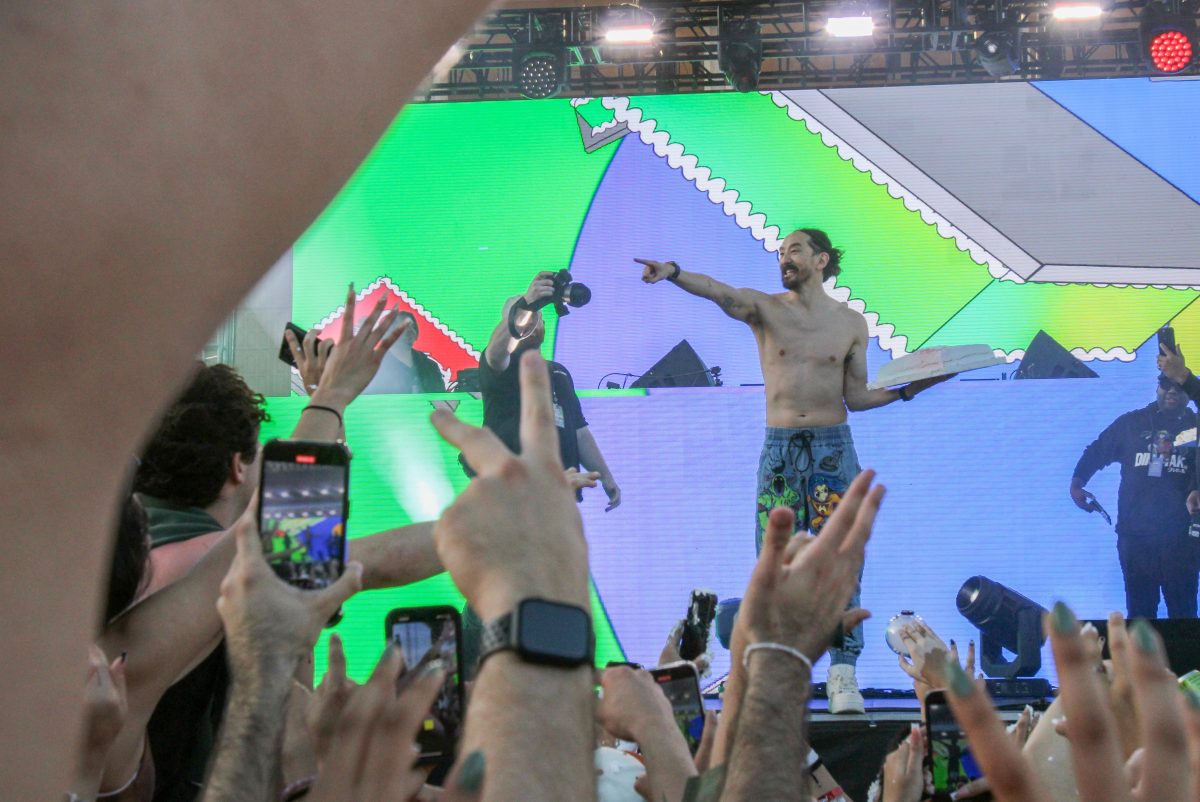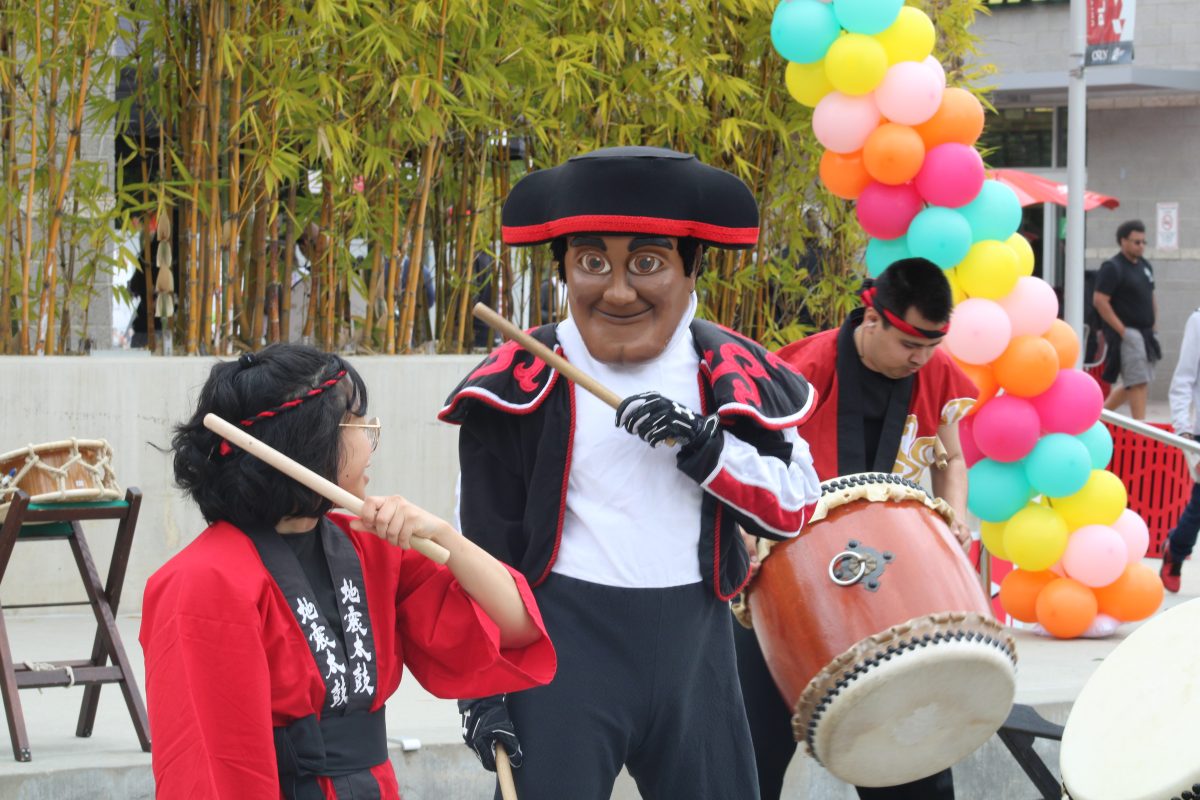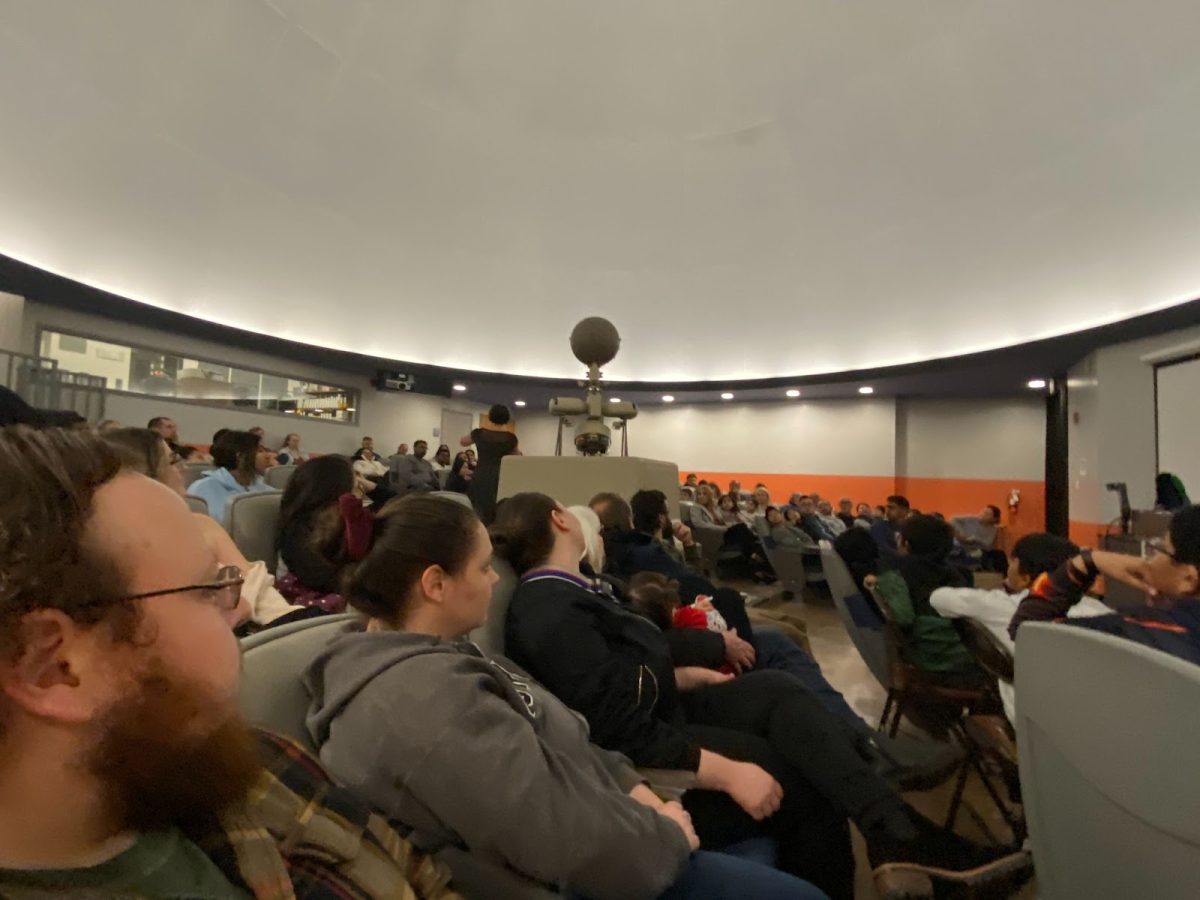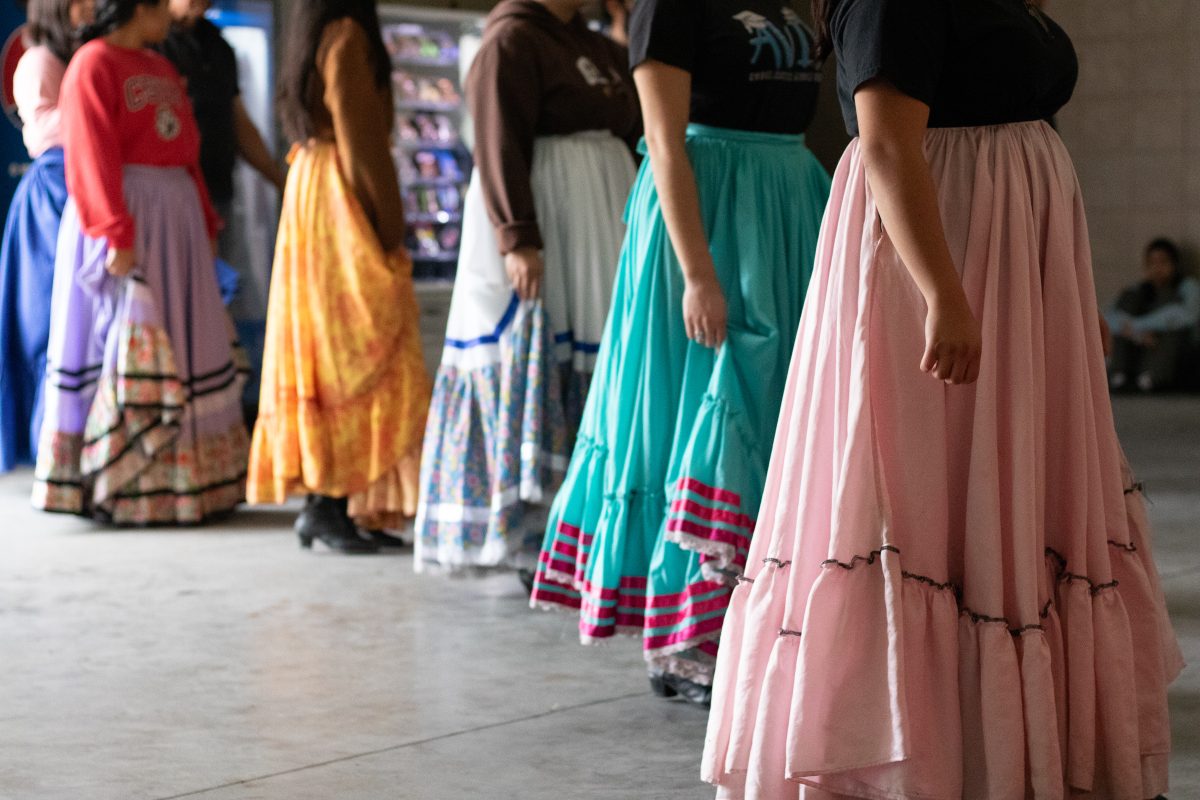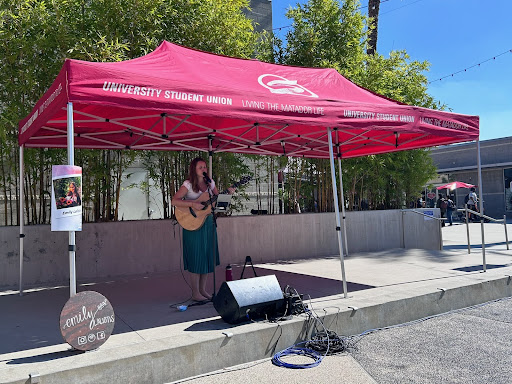When the smell of danger streaks the air, a long-snouted-four-footed partner certainly comes in handy. The CSUN K9 team is here to provide the security services needed by the community.
While the Department of Police Services has taken in multiple dogs since the K9 unit began in 2005, the unit currently has two dogs serving the CSUN community: Isy and Mitch. Both dogs are full-bred German Shepherds that were originally born in Germany and donated to the CSUN K9 program.
Isy’s handler, Corporal Thomas Finnerty, took Isy in as his partner in 2012, and she has been responsible for bomb detection ever since. Mitch’s handler, Officer Anthony Vargas, accepted Mitch as his partner in 2012, and now serves in narcotics detection and patrol.
Many college police departments do not provide a K9 unit, but Chief Anne Glavin recognizes the importance of the dogs as a part of the CSUN community.
“Having a K9 unit is extremely valuable in today’s world where we see a greater likelihood of bomb threats,” Glavin said. “The independent ability to immediately search an area for a device saves a tremendous amount of time, without having to rely on outside agencies. We also utilize the K9 to search event venues ahead of special events—a standard procedure for large events– particularly those with high level VIP’s.”
Isy has provided security for heads of states, presidents, U.S. Supreme Court Justices, senators and foreign dignitaries. Previous dogs in the K9 unit have served at the Grammy’s, presidential campaigns and larger events at CSUN.
In addition to providing imperative security services to the CSUN community, the dogs are also great companions to keep around for public relations.
“The dogs are extremely popular in the campus community. and make for excellent community relations- just like any good, friendly officer,” Glavin said.
The implementation of the K9 unit began in 2005 to ensure emergency preparedness, after concerns regarding the aftermath of the terrorist attacks on 9/11. Since the unit began, five dogs have provided their services to the CSUN police department: Briska, Frieda, Dozer, Mitch and Isy.
The CSUN police department works with secret services, the FBI and other departments around L.A., allowing the CSUN K9s a chance to work with over 40 dogs in other training groups.
There is certain criterion the trainers must look for when finding the next police dog to add to the program. They must have a high play drive and a high hunt drive, according to Finnerty.
“They have to have a high hunt drive because it means they are willing to hunt for their prey,” Finnerty said. “We are looking for their confidence as a puppy. They’re not afraid to climb up on rocks or get into places where if he gets stuck, he doesn’t freak out and he works his problem out.”
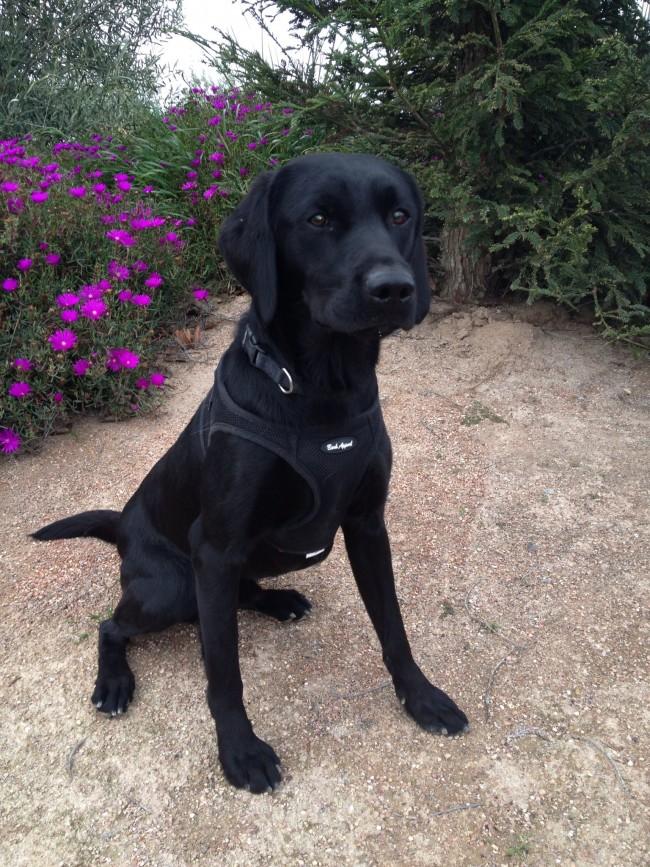
Finnerty is currently training his one-year-old black Labrador retriever, Racker, to become a future K9 for the CSUN police department. Racker will be the first non-German Shepherd in the program.
In addition to showing their worth as a puppy, the CSUN K9 unit specializes in bomb detection, where the dogs must complete training school to provide their services.
In order for the dogs to complete bomb detection training school, each dog must be able to sniff out nine different odors. Isy can smell 18, according to Finnerty.
To train the dogs, the trainers use pseudo narcotics and explosives, making use of just the odors for the dogs to sniff out.
When the department accepts a new dog into the unit, the handlers must take a psychology test, and are matched up with a dog that best suits their personality.
Finnerty discusses his preference in working with female dogs.
“I’ve had dogs all my life, and for me, female dogs typically work better for male handlers because it’s just like having a wife or a girlfriend… all they want is love and attention,” Finnerty said. “With a male dog and a male handler, everything happens like it does back in the wolf pack. It’s only natural for them to try and challenge the alpha, and for them to try and become the alpha. With the females, if you show them love and attention, everything’s great.”
Despite the gender of the dogs, Finnerty believes it is important to have the K9 unit on campus, seeing as universities are a high value target for terrorists, since they host a large congregation of civilians in one area.
Each dog in the unit contributes an average of five years of service for the CSUN police department, typically retiring around age eight, according to Finnerty. Although Isy and Mitch were both donated, they are worth about $22,000 for their ability to detect explosives and narcotics.
Although having a K9 unit on campus may be appealing to the onlooker, the handlers of the dogs have a much different experience. The constant care and attention required by each dog is a full-time job on its own. From spending hours training each dog, to taking them to appointments at the veterinarian’s office, the work can be a bit overwhelming for some.
“People don’t realize how much work it is,” Finnerty said. “Seventy-four percent of first time police K9 handlers never take a second dog.”
One problem the handlers may encounter when taking responsibility for the K9, is to restrain from treating them like a pet, despite the fact they can take them home at the end of each day.
“If you show them too much love and attention at home, then when you come to work it’s not special,” Finnerty said. “If they get too much love and attention at home, then they don’t want to work.”
The dogs are trained so their praise and attention comes after they get a specific job done. If the dogs are constantly shown love and attention, and treated as a family member, they are less willing to work for their praise, because they get it all the time anyways.
This is not to say the dogs never get special attention outside of the job. A Meet the Dogs event is scheduled for April 15 in front of Bayramian Hall where the dogs get showcased on their talents. Demonstrations of apprehension as well as narcotics and explosive detection are exhibited for all onlookers. This is an event just for the dogs, to show the community’s appreciation for their services.
For a majority of the dogs service life at CSUN, they need to be alert at all times. Although the campus averages less than one threat a month where the dogs are called for duty, the K9 unit is still a crucial component of CSUN’s department of police services.
“We want to have the tools available if the situation calls for it,” Finnerty said.
By having the dogs available to use if the situation arises, CSUN is a much safer place where the community can not only enjoy the dogs’ presence, but also feel more secure in the rise of a potential threat.
